Newsletter #50: March 28th, 2024
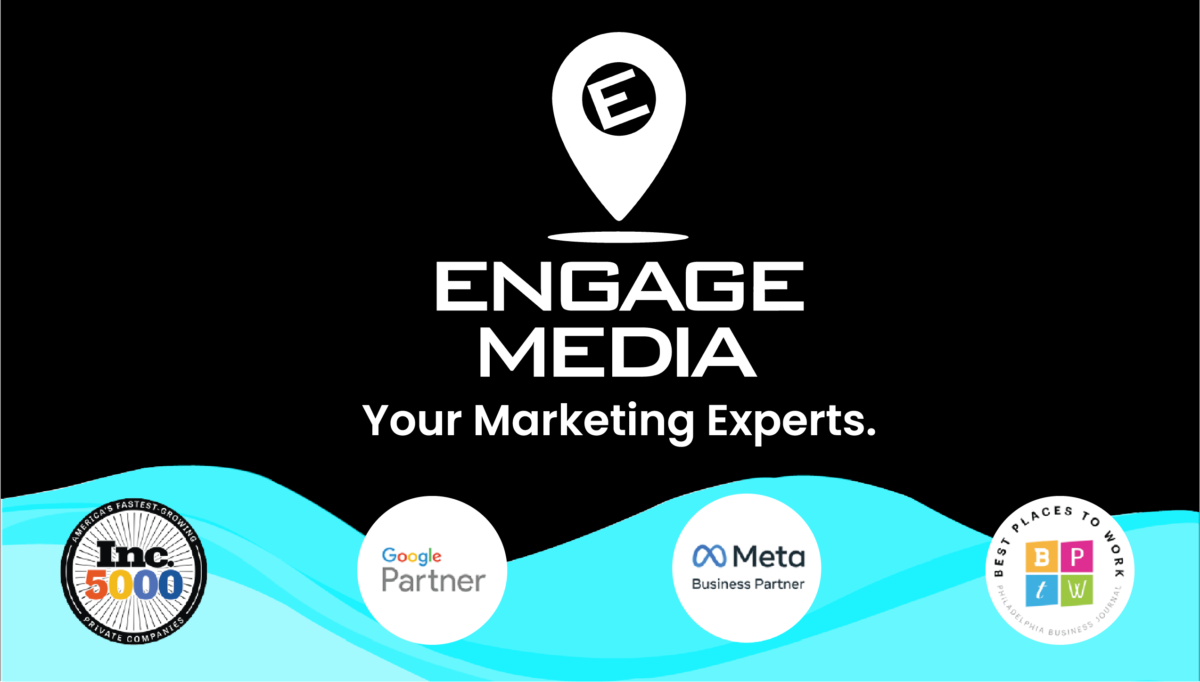
News to Know
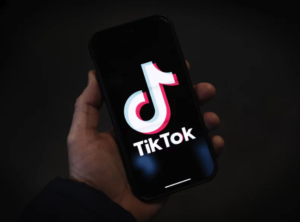
Why the House voted to ban TikTok and what could come next.
The House voted overwhelmingly Wednesday to approve a bipartisan bill that would require ByteDance, the parent company of TikTok, to sell the social media app or face a ban on all U.S. devices. The vote was 352-65.
The legislation's fate is unclear in the Senate. The top two lawmakers on the Senate Intelligence Committee, Sens. Marco Rubio, R-Fla, and Mark Warner, D-Va., released a joint statement praising the House bill and urging Senate action but the timeline is unclear. Several lawmakers have suggested the Senate should hold hearings on the legislation before moving forward.
Source: NPR

How generative AI could solve the cookie deprecation puzzle in 2024.
As the death of the cookie nears, marketers will need to have a better handle on their data, a task that AI might be able to handle.
It finally has begun: On Jan. 4, Google disabled third-party cookies for 1% of Chrome, or approximately 30 million users. The move represents the first tangible step in the search giant’s plan to phase out the tracking technology for all users in the second half of the year — a change that will eliminate a long-standing digital advertising tool.
With the announcement nearly four years ago that it would eventually kill the third-party cookie, Google set into motion a race for the advertising industry to build, test and adopt alternative targeting and tracking methods, whether using its Privacy Sandbox proposals or those crafted by other players.
Source: Marketing Dive

Google's 'Circle to Search' lets Android users highlight and search in the same window.
Just circle and search.
The only way to look something up while browsing on your phone involved tediously switching between apps... until now.
Today, Google announced a new android feature called "Circle to Search," which lets users circle or scribble over something in an image or video still and search for more info about it — in the same window. Coinciding with the Samsung Unpacked event today, Circle to Search will be available on Samsung's Galaxy S24 Series as well as Google's Pixel 8 and Pixel 8 Pro. So, apologies to iPhone users, but this is an Android-only feature.
Source: Mashable
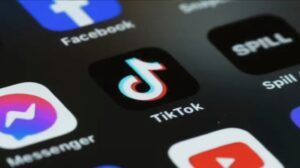
TikTok makes $2.1 million TV ad buy as Senate reviews bill that could ban app.
TikTok has launched a $2.1 million advertising campaign with a clear message for senators in tough reelection fights this year: Block the House bill that could effectively ban the app in the United States.
“Think about the 5 million small business owners that rely on TikTok to provide for their families,” one purported TikTok user says in the ad. “To see all of that disappear would be so sad,” says another apparent user.
The company has reserved television ad space in the battleground states of Nevada, Montana, Wisconsin, Pennsylvania and Ohio, according to previously unreported data from AdImpact.
Source: CNBC
OpenAI debuts its GPT Store for custom chatbots.
Following a delay, OpenAI said Wednesday that its GPT Store is now open and highlighted some of the most compelling of the custom chatbots that developers have created and shared.
Why it matters: Much as the iPhone's App Store allowed developers to create programs far beyond what Apple had envisioned on its own, OpenAI's store could allow a range of useful tools that likely would never have made it onto the ChatGPT creator's own roadmap.
Source: Axios
Meta to start blocking some content from reaching teens on Facebook and Instagram.
The company, which has faced ongoing scrutiny over how young people use its products, said it wanted to create more "age-appropriate experiences on our apps."
Meta will begin removing some sensitive and "age-inappropriate" content from teenagers' feeds, the company said in an announcement published Tuesday.
Meta already restricted topics such as self-harm, eating disorders and mental illnesses from being recommended to teens on Reels and the Explore pages of its apps. The new update also restricts these topics from appearing in young users' feeds and Stories, even if the content was posted by people they follow.
Source: NBC News

‘AI-powered’ ad ignites creator controversy on Instagram.
A new ad from Under Armour featuring boxer Anthony Joshua has come under fire from creatives on Instagram after its director claimed it as the “first Ai-powered sports commercial” — but critics in the industry say it blatantly reused others’ work without credit as part of an AI hype cycle cash grab.
Director Wes Walker posted the spot, along with several variations and riffs, on Instagram earlier this week, saying: “Under Armour asked us to build a film from nothing but existing assets, a 3D model of Anthony Joshua and no athlete access. This piece combines Ai video, Ai photo, 3D CGI, 2D VFX, Motion graphics, 35mm film, digital video and advances in Ai voiceover. Every current Ai tool was explored and pushed to the maximum.” [I have left “AI” as “Ai” throughout.]
Seen on its own, the ad is not in itself objectionable. Live footage is intercut with 3D models, landscapes and abstract scenes, all rendered in contrasty monochrome.
Source: TechCrunch

House Unanimously Passes Press Protection Act.
The U.S. House of Representatives has unanimously passed the bipartisan Protect Reporters from Exploitative State Spying (PRESS) Act.
“House passage of the PRESS Act in a unanimous vote moves America closer to establishing our first federal press shield law ever,” says co-author, Rep. Jamie Raskin (D-Maryland).
Source: MediaPost
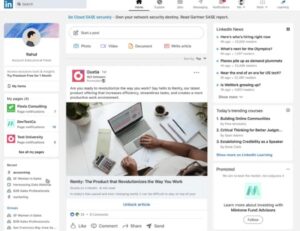
LinkedIn launches sponsored articles.
LinkedIn users can read sponsored posts without leaving the platform, potentially leading to increased engagement.
LinkedIn has introduced sponsored articles, providing marketers with an additional tool that may contribute to enhancing brand awareness, increasing engagement, and driving lead generation.Why we care. As LinkedIn users will not have the hassle or inconvenience of having to leave the platform to read the sponsored content, this could result in higher engagement.
Source: Search Engine Land
How fandom’s evolution on YouTube is reshaping marketing.
With the NFL season behind us and the NBA season heating up, I’ve been thinking a lot about sports fandom and its evolution. The rise of streaming and creator content means fans can engage with sports in many more dimensions — in deeper ways and from different angles and voices. In particular, fans come to YouTube en masse to access worlds of sports content, including content from their favorite creators that they can’t find anywhere else.
The sports leagues themselves are taking notice. Case in point: the NFL. To meet the next generation of NFL fans where they are, the league partnered with some of Gen Z’s favorite YouTube creators at the Super Bowl, like FaZe Rug, who got access to wide receiver DK Metcalf for a This or That game, and Hayley Kalil, who posted fit checks with her dad straight from the Super Bowl field. Beyond the creator partnerships, the league showed up on YouTube with a real-time, multiformat strategy, posting reaction videos, candid moments from the field, and much more, generating tens of millions of views on the platform and reaching a younger audience.
Source: Think with Google

Designing for Accessibility: 9 Ways to Improve Digital Experiences for People with Disabilities.
Enhance every digital experience by designing for accessibility. These tips will teach you how to create inclusive designs for people with disabilities.
With over a billion people around the world living with some form of disability, it’s important for designers to ensure they’re creating spaces, visuals, products, and interfaces that allow for everyone, including impaired users, to fully participate and live with independence and dignity.
Accessible design is essential for creating an equitable and inclusive society for all. It’s not just a trend—it’s a necessity.
Source: Shutterstock
2024 trend watch: Social media will have a bigger seat at the marketing strategy table.
In 2024, social will move from being a siloed, ancillary tactic to a core part of the marketing mix. And as more companies recognize the value of culture and community in driving conversions, creators will also shape more marketing plans.
The continued legitimization of social media and the creator economy is showing up in many ways. Brands from Pizza Hut to Rolls-Royce have recently appointed social agencies of record, and nearly every marketer is working to better incorporate social and creators into their 2024 strategies.
Source: Insider Intelligence | eMarketer
Making a 2024 marketing plan? Don’t bother unless it includes YouTube Shorts.
Ross Walker of influencer marketing agency Redpill says that, this year, YouTube is gearing up to take on TikTok and Facebook in the battle of the social apps, and short-form content is its secret weapon.
In 2023 we saw social platforms rise and fall in less time than it takes to make a cup of tea.
Source: The Drum
Sign up for our newsletter.

CES2024: Smartphone Ownership Surpasses TV Ownership in U.S. for the First Time.
Enhance every digital experience by designing for accessibility. These tips will teach you how to create inclusive designs for people with disabilities.
With over a billion people around the world living with some form of disability, it’s important for designers to ensure they’re creating spaces, visuals, products, and interfaces that allow for everyone, including impaired users, to fully participate and live with independence and dignity.
Accessible design is essential for creating an equitable and inclusive society for all. It’s not just a trend—it’s a necessity.
Source: TV Technology

McDonalds - “Never Lost In Translation”
Source: Brilliant Ads via LinkedIn
Reminder: Google Enforcing New Email Rules Next Month.
Google tightens email rules for bulk senders in February to reduce spam and improve security.
Next month, Google will enforce stricter rules for businesses and groups that send large volumes of email to Gmail accounts.Initially announced in October, these new policies are intended to reduce spam and make email more secure.
Source: Search Engine Journal

Meta is developing open source AGI, says Zuckerberg.
In a surprise Instagram Reel today, Meta CEO Mark Zuckerberg said that the company is developing open source artificial general intelligence (AGI).It is bringing two of of its AI research teams – FAIR and GenAI – closer together with the goal of building full general intelligence and open sourcing it as much as possible.
“Our long-term vision is to build general intelligence, open source it responsibly, and make it widely available so everyone can benefit,” wrote Zuckerberg in a caption. In the video, he said that “it’s become clear that the next generation of services required is building full general intelligence, building the best AI assistants, AIs for creators, AIs for businesses and more that needs advances in every area of AI from reasoning to planning to coding to memory and other cognitive abilities.”
Source: Venture Beat
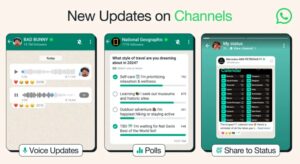
WhatsApp Channels now let owners send voice messages.
Meta has introduced new features for Channels worldwide.
WhatsApp has introduced new features Channels can use to interact with their followers. The biggest one, perhaps, is voice updates. Channel admins and owners, such as celebrities, can now send voice messages to their group. Meta says Puerto Rican rapper Bad Bunny was the first celebrity to test it out, but it's rolling out the feature broadly today. Voice updates is one of WhatsApp's most popular features, probably because it allows users to send messages without having to type, even while they're driving or doing something else. Apparently, WhatsApp users send 7 billion voice messages on the app every day, so it was most likely a very easy decision for Meta to bring the feature to Channels.
Source: engadget
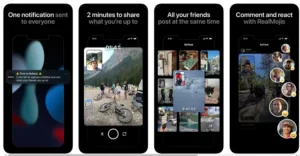
BeReal Is Struggling To Add Users as It Runs Out of Funding.
Remember when BeReal was the trending social app of the moment, with a rising gaggle of thought leaders proclaiming it as a return to real, human connection and engagement online?
As it turns out, that was only short-lived, with Business Insider reporting that BeReal is now stuck in a limbo of sorts, as user growth stalls and new initiatives, like a celebrity feed of daily updates, fail to gain traction.BeReal’s current active user count is around 25 million, which it has been since mid last year. That’s significantly down on the 70 million daily actives that it had at peak.
Source: Social Media Today
Digiday’s definitive, if not exhaustive, 2024 Google Chrome third-party cookie deprecation glossary.
Adios, third-party cookies. As Chrome kicks them to the curb, let’s untangle the web of jargon that’s left behind. This glossary is your quick, no-frills guide to the biggest shake-up in online advertising. Let’s dive in.
Source: Digiday
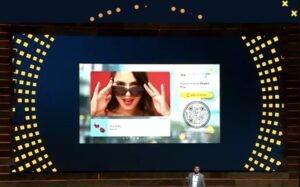
Disney Adds Measurement Partners, Debuts Shoppable Ads.
Disney has launched a beta program for its first native, streaming shoppable ad format that allows consumers to purchase their favorite items online through content.
The new Gateway Shop ads are interactive and run on platforms such as Hulu. The shopping experience allows viewers to receive personalized prompts for products sent directly to their phones through push notifications or email.
Source: MediaPost
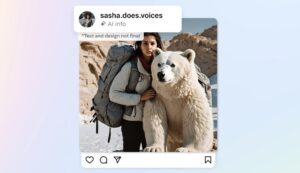
Labeling AI-Generated Images on Facebook, Instagram and Threads.
As a company that’s been at the cutting edge of AI development for more than a decade, it’s been hugely encouraging to witness the explosion of creativity from people using our new generative AI tools, like our Meta AI image generator which helps people create pictures with simple text prompts.
As the difference between human and synthetic content gets blurred, people want to know where the boundary lies. People are often coming across AI-generated content for the first time and our users have told us they appreciate transparency around this new technology. So it’s important that we help people know when photorealistic content they’re seeing has been created using AI. We do that by applying “Imagined with AI” labels to photorealistic images created using our Meta AI feature, but we want to be able to do this with content created with other companies’ tools too.
Source: Meta
New Hampshire Passes Law Restricting Behavioral Targeting.
Lawmakers in New Hampshire have approved a privacy bill that, if signed into law, will give residents the right to reject online behavioral ad targeting.The bill, passed last week, awaits signature by Governor Chris Sununu. If enacted, New Hampshire will join more than a dozen other states in enacting comprehensive privacy legislation.
As with other recent state privacy bills, the measure (Senate Bill 255) essentially defines targeted advertising as ads based on people's activity over time and across non-affiliated websites. That definition excludes ads served based on first-party data.
Source: MediaPost
Requiem for the lapsed: what to do to reactivate donors at the beginning of the year.
January in fundraising is an odd time. You’re either breaking open the champagne from exceeding your end-of-year goals or digging deep into planning how you’ll hit your target in the new year. Often both. Outbound development activity is often muted and almost completely focused on gratitude for last year’s gifts, and cultivation moves without big asks.
But January can also be a time to grab a new valuable piece of data: the list of those donors who are now lapsed, having not given for the whole previous calendar year (or previous two, depending on how you want to splice your data).
Source: Philanthropy Daily
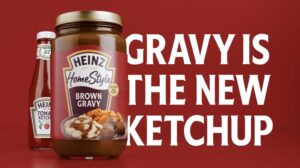
Heinz serves up gravy ‘hot takes’ to boost condiment beyond the holidays.
Part of the “It Has to be Heinz” creative platform, the effort leverages the brand’s icon status to encourage consumers to use gravy how they use ketchup. Heinz is looking to make gravy the new ketchup to close the gap between its second-largest subcategory and the iconic red condiment with which many consumers are familiar. A new marketing initiative encourages shoppers to apply Heinz’s brown gravy offerings the same way they do its ketchup, expanding purchase occasions beyond the holiday periods that make up about 45% of Heinz gravy sales.
Nearly two-thirds (63%) of surveyed consumers already use Heinz gravy monthly, according to the announcement. The gravy-focused push complements an “It Has to be Heinz” platform that celebrates the extreme and irrational lengths Heinz adherents will go to in expressing their fondness for the brand.
Source: Marketing Dive
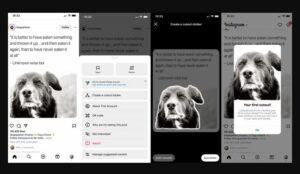
Instagram Enables Users To Create Custom Sticker From Still Image Posts.
Instagram’s added a new option that enables you to cut out elements of still image posts, which you can then re-use as stickers in your own Stories and Reels.
As you can see in this example flow, Instagram’s new “Create a cutout sticker” is available within the three dots menu display on any publicly posted still image post. When you activate it, Instagram’s system will then identify the focus entity in the image, which you can then save as a separate sticker.
You can then use that sticker in your Stories and Reels.


